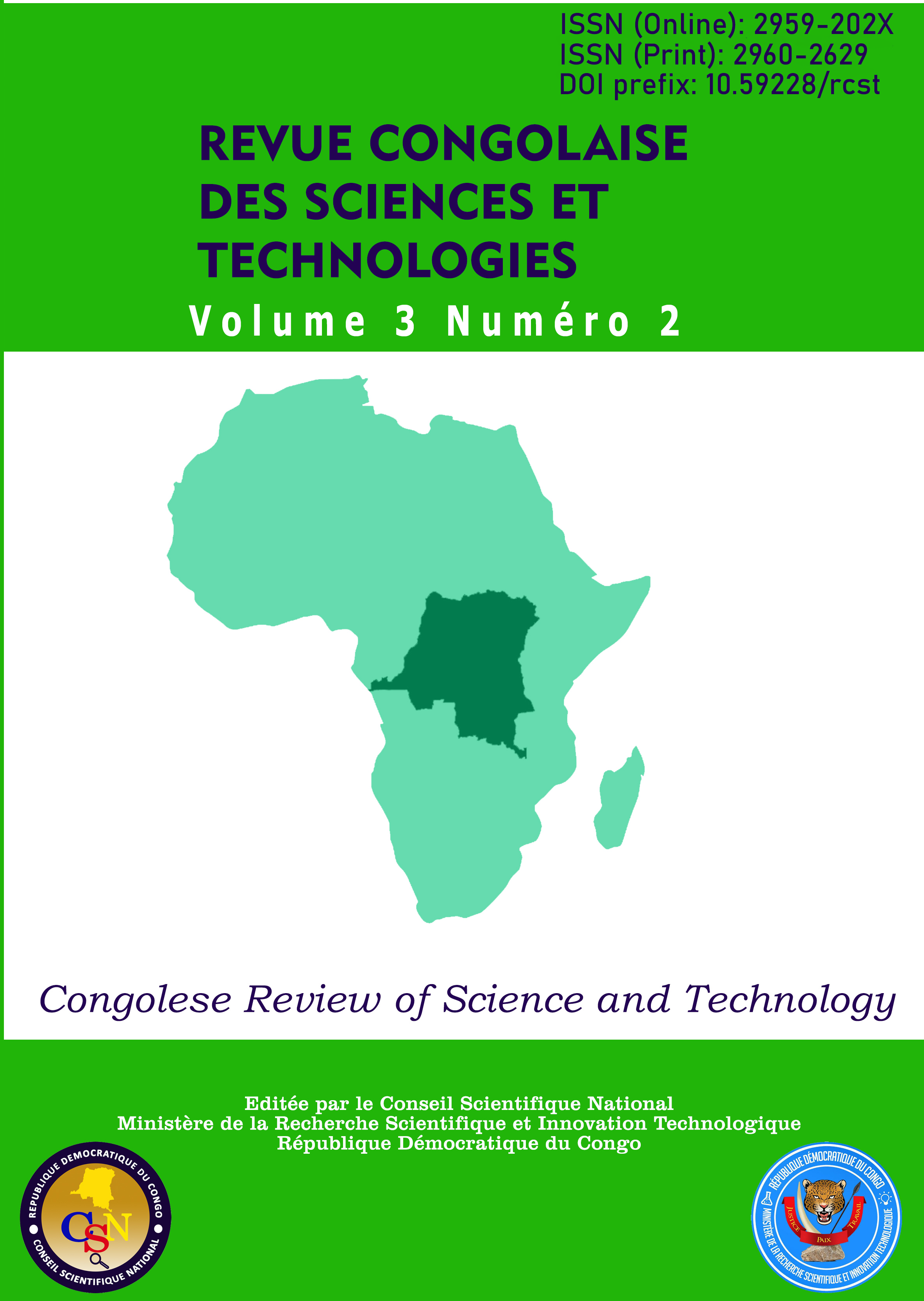Critical analysis of the R.Const. 1816 judgment of the constitutional court of the Democratic Republic of Congo: in the Matata Ponyo Mapon affair
Main Article Content
Abstract
According to a report from the General Inspectorate of Finance (IGF) of the Democratic Republic of Congo, at the origin of
the legal proceeding opposing the Public Prosecutor’s Office aganst the defandants Matata Ponyo, former Prime Minister and
others, more than 205 million dollars Americans out of 285 disbursed by the Public Treasury would have been diverted within
the framework of the management of the Bukangalonzo Agri-Food Parc. For not having put in place monitoring mechanisms,
Matata Ponyo is accused by the IGF of « guilty negligence » leadingto opacity in the management of the project and
overcharging for goods and services. Thus on November 15, 2021, the constitutional court declared itself incompetent to
judge a former prime Minister and released the Defendant Matata Ponyo from allhis charges. This same court handed down a
judgment on Nonvember 18, 2022 giving in the jurisdiction to judge a former prime Minister, thus pluging us into a situation
where, for the same case, the court ruled in two different ways. One thing and its opposite generated by the high court
supposed to preach the absolute practice of law in judicial circles. In Congo, the constistutional judge has already expressed
himself, there is no more debate, to the public authorities this decision is imposed, to the people, he is opposed, but it is not
surprising that the Scientific comments, the against each other, engaging in discussions on the same subject. The probleme for
each side is firstly to agree on the notion of the natural judge in law, then the criminal jurisdiction of the Constitutional Court.
Article Details

This work is licensed under a Creative Commons Attribution-NonCommercial-ShareAlike 4.0 International License.
References
Banza, G. (2022). La position d’un universitaire face
aux arrêts de la Cour Constitutionnelle.[Conférence débat]. Université de
Lubumbashi, 27 novembre 2022.
Cornu, G. (2005). Vocabulaire juridique (7è éd).
Paris, Association Henri Capitant.
Cour suprême de justice, RPA 121, du 23 décembre
, Aff. Kitaba et Endungu /MP et
succession Mwinyi, publié par KATWALA
KABA KASHALA, Arrêts de principe, éd
batena, Kinshasa, 2009, p.264
Constitution de la République Démocratique du
Congo, telle que modifiée par la Loi n° 11/002
du 20 janvier 2011 portant révision de certains
articles de la Constitution de la République
Démocratique du Congo du 18 février 2006.
J.O.R.D.C., 52ème année, numéro spécial, du 5
février 2011.
Loi Organique n°13/010 du 19 février 2013 portant
procédure devant la Cours de Cassation,
J.O.R.D.C., n° Spécial, 20 février 2013.
Nzav, E. (2022). Conférence débat sur la thématique
de la forme avant le fond l’affaire est close du
parc agro-industriel de bukanga-lonzo , 27
novembre 2022, Lubumbashi.
Picardi, N. (2010). Le juge naturel. Revue
internationale de droit comparé, 1(62) :27-73
Pierre, V. (1959). Les revirements de jurisprudence
et leurs conséquences. Dalloz, PUF.
R. Const., 15 novembre 2021, RP 0001, O.M.P c/
Messiers Matata Ponyo Mapon Augustin,
Kitebi Kibol Mvul Patrice et Grobler Christo.
R. Const. 18 novembre 2022, RP 1816, O.M.P c/
Messieurs Matata Ponyo Mapon Augustin,
Kitebi Kibol Mvul Patrice et Grobler Christo.
Roubier, P. (1960). Le droit transitoire. Revue
internationale de droit comparé, 3(12), 664-

